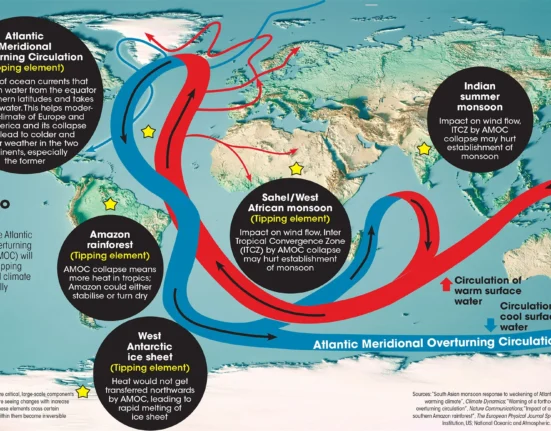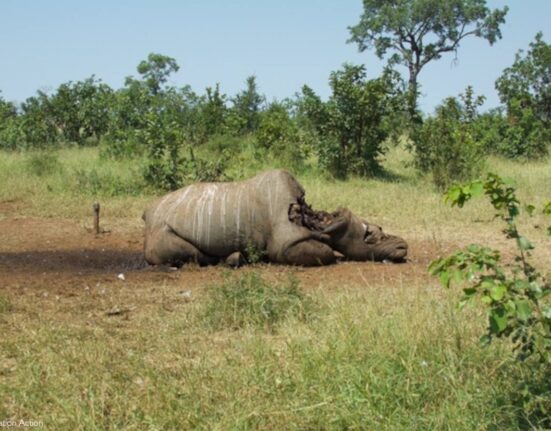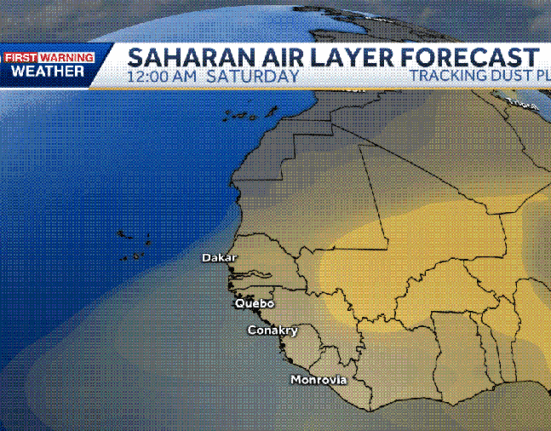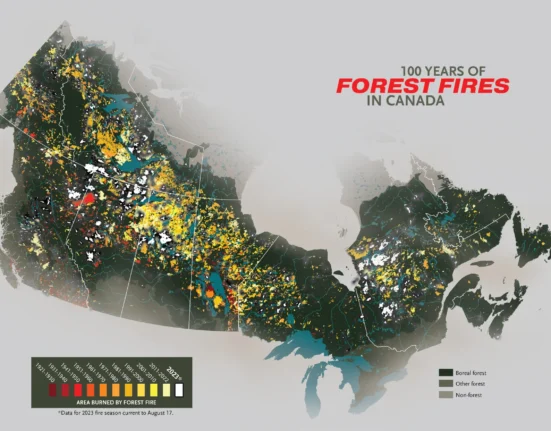Large numbers of trees have withered away amidst the majestic beauty of the Harz mountains in Germany. The culprits? Extreme weather conditions coupled with the relentless attack of bark beetles, turning swathes of lush greenery into desolate landscapes. This environmental catastrophe is not just a local concern; it has far-reaching implications that are now causing alarm bells to ring across Europe.
For decades, European forests have played a crucial role as both a valuable source of timber and a vital carbon sink, absorbing carbon emissions and helping mitigate global warming. However, this fundamental function is now under threat as these forests face unprecedented challenges due to climate change-induced extreme weather events.
According to Glen Peters from the CICERO Center for International Climate Research in Norway, the sudden decline in carbon absorption by European forests is raising concerns about the continent’s ability to meet its land use climate targets. Peters warns that many European Union countries are at risk of missing these crucial targets if immediate action is not taken to address the diminishing capacity of forests to sequester carbon.
In a sobering announcement earlier this year, Finland declared a troubling shift in its forest biome – transitioning from being a net absorber of carbon to becoming a net emitter. This startling revelation followed Germany’s acknowledgment that its own forests have started emitting more carbon than they absorb, marking an unprecedented reversal in the country’s ecological history. Similarly, the Czech Republic has been grappling with forest ecosystems turning into sources of carbon emissions since 2018.
These alarming developments are not isolated incidents but part of a broader trend impacting forested regions across Europe. Even in countries where forests still maintain their status as net carbon sinks, there has been a significant drop in their capacity to offset emissions effectively. Take France, for instance: research shows that within just 14 years, the amount of carbon dioxide absorbed by French forests plummeted by almost half – from 74.1 million tonnes per year in 2008 to 37.8 million tonnes in 2022.
Norway shares a similar plight, witnessing a stark decrease in CO2 uptake by its forests from 32 million tonnes in 2010 down to 18 million tonnes by 2022. These distressing figures underscore an urgent need for comprehensive strategies aimed at safeguarding and restoring Europe’s invaluable forest ecosystems before irreversible damage is done.
Expert Insight:
Renowned ecologist Dr. Maria Lopez emphasizes that “the deterioration of European forests reflects not only environmental degradation but also systemic failures in our approach towards sustainable land management.”
As scientists grapple with unraveling the intricate web of factors contributing to this forest crisis, policymakers are faced with mounting pressure to implement robust measures that can reverse this concerning trajectory and steer Europe back on course towards achieving critical net-zero goals. The fate of these ancient woodlands hangs precariously in the balance – underscoring the imperative for concerted action on both local and international fronts.









Leave feedback about this